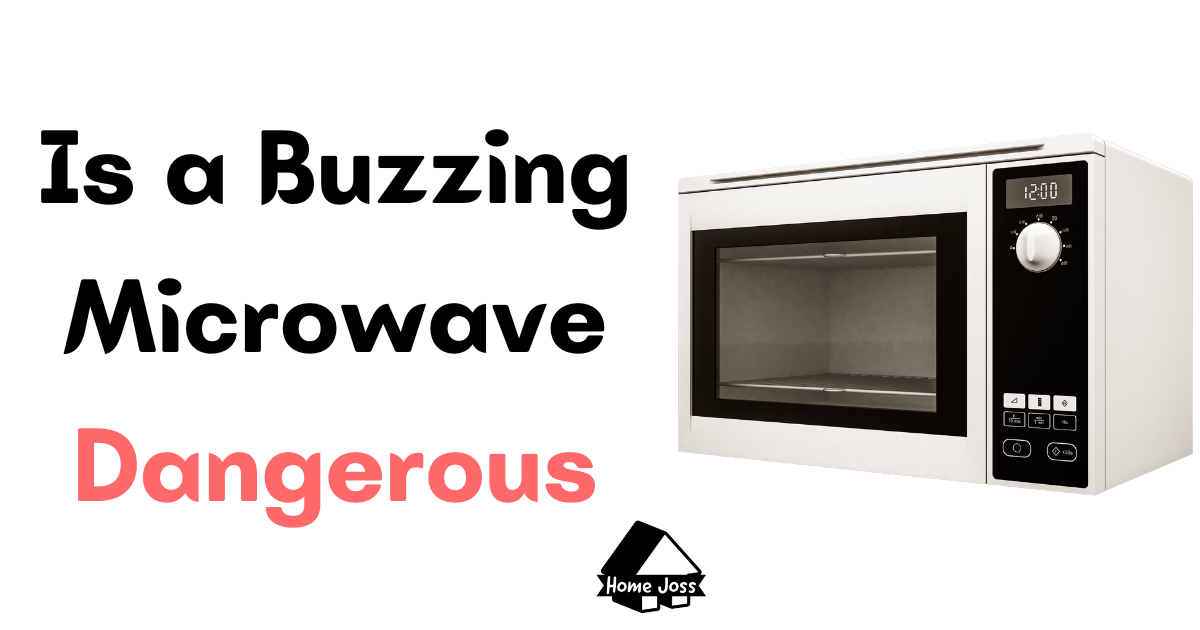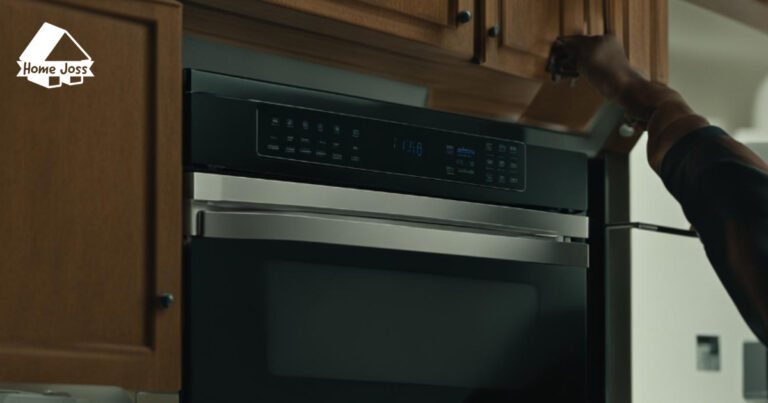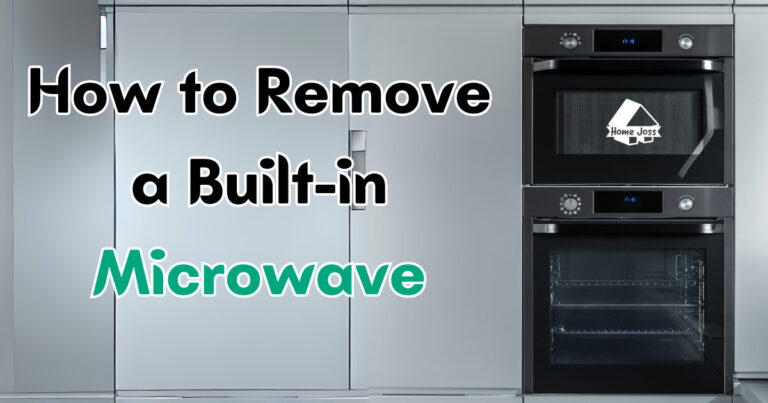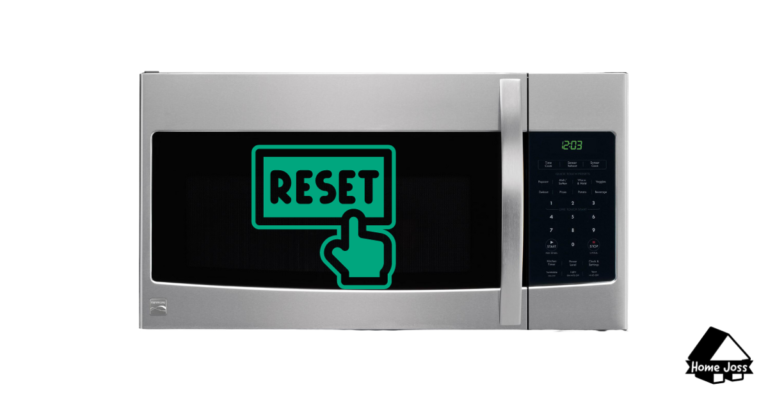Microwave ovens have become an indispensable part of modern kitchens, offering convenience and efficiency in cooking. However, have you ever wondered if a buzzing microwave is dangerous?
In this detailed guide, we will explore the potential risks associated with a buzzing microwave and provide you with valuable insights to keep yourself safe while using this essential appliance.

Is a Buzzing Microwave Dangerous?
Yes, a buzzing microwave can be dangerous. It often indicates an underlying issue such as a malfunctioning cooling fan, a faulty magnetron, or a defective diode, each of which can lead to significant hazards if not addressed.
The risks include potential fire hazards, especially if there are sparks or smoking, and the risk of electrocution due to malfunctioning high-voltage components.
It is essential to address the buzzing noise promptly, either through DIY maintenance if the issue is minor or by seeking professional assistance for more complex problems to ensure safety.
Causes of Buzzing Microwaves
Microwaves are designed to operate silently, but when they start buzzing, it’s a clear sign that something is amiss. Let’s dive into the various factors that can cause a microwave to emit buzzing sounds and investigate whether they pose any danger.
Cooling Fan: Culprit Behind the Buzz
One of the most common causes of a buzzing microwave is a malfunctioning cooling fan. The cooling fan plays a crucial role in keeping the internal components of the microwave, such as the magnetron, cool during operation.
When the cooling fan becomes clogged or damaged, it can produce a loud buzzing noise. While a malfunctioning cooling fan is not inherently dangerous, it indicates an underlying issue that needs to be addressed to prevent further damage to the microwave.
Magnetron Troubles: Buzzing with Power
The magnetron is the heart of a microwave oven, responsible for generating the electromagnetic waves that heat food. A malfunctioning magnetron can emit high-pitched buzzing sounds, indicating a potential problem.
This issue can arise due to various factors, such as worn-out components or power fluctuations. While a buzzing magnetron itself may not be dangerous, it can be a sign of impending failure that requires professional attention.
Faulty Diode: Disturbing the Peace
The diode in a microwave oven supplies the magnetron with the necessary DC power to generate electromagnetic waves. If the diode malfunctions, it can cause buzzing or humming noises.
While a faulty diode may not pose an immediate danger, it can lead to further complications if left unaddressed. It is crucial to identify and replace a faulty diode to ensure the safe and efficient operation of the microwave.
Other Potential Causes: Sparks and More
Apart from the cooling fan, magnetron, and diode, there are other factors that can contribute to a buzzing microwave. These include issues with the turntable motor, drive motor, roller guide, and even the capacitor.
Sparks inside the microwave can also indicate a problem, potentially damaging internal components and increasing the risk of a fire. It is essential to investigate any unusual buzzing, sparking, or smoking and take appropriate action to prevent further damage or potential hazards.
Is a Buzzing Microwave Really Dangerous: Understanding the Risks
Now that we have explored the potential causes of a buzzing microwave, let’s address the burning question: Is a buzzing microwave dangerous? The answer is not a simple one, as it depends on the underlying issue causing the buzzing sound.
While some causes may not pose immediate risks, others can lead to significant hazards if left unattended.
Fire Hazards: Sparks and Smoking
One of the most critical concerns with a buzzing microwave is the risk of fire. If sparks occur inside the microwave, it can damage internal components and potentially ignite a fire.
Smoking or burning smells emanating from the microwave are clear indicators of an issue that requires immediate attention. It is crucial to turn off the power supply and contact a professional appliance repair technician if you notice any signs of sparking or smoke.
Electrocution Risks: Malfunctioning Components
A buzzing microwave can also indicate malfunctioning components, such as the magnetron or diode, which can increase the risk of electrocution. Faulty high-voltage parts can generate excessive heat and cause further damage to the microwave.
It is essential to prioritize safety and turn off the power supply if you suspect any issues with these components. Seeking professional assistance is crucial to ensure proper diagnosis and repair of the microwave, reducing the risk of electrical hazards.
Structural Damage: Internal Component Failure
Continued use of a buzzing microwave without addressing the underlying issue can lead to further damage to its internal components. This damage can result in the microwave becoming inoperable or even causing irreversible harm.
For example, a malfunctioning cooling fan can cause the microwave to overheat, leading to component failure and potential structural damage. It is crucial to address buzzing noises promptly to prevent further complications and extend the lifespan of your microwave.
Fixing a Buzzing Microwave: DIY or Professional Help?
If you encounter a buzzing microwave, you may wonder whether you can fix the issue yourself or if professional help is necessary. The answer depends on your expertise and the specific problem causing the buzzing sound.
Let’s explore the possible solutions for addressing a buzzing microwave.
Cleaning and Maintenance: A DIY Solution
In some cases, a buzzing microwave may be the result of minor issues that can be resolved through simple cleaning and maintenance. Start by unplugging the microwave and cleaning all removable components, such as the turntable and roller guide.
Ensure that the cooling fan is free from any debris or obstructions. Performing a thorough cleaning can sometimes eliminate the buzzing sound and restore the microwave’s proper functioning.
Diagnosing and Replacing Faulty Parts: Professional Assistance
If the buzzing persists after cleaning and maintenance, it is advisable to seek professional assistance. A qualified appliance repair technician can diagnose the specific problem and replace any faulty parts, such as the cooling fan, magnetron, diode, or drive motor.
Attempting to repair these components without proper knowledge and tools can be dangerous and may lead to further damage. Investing in professional repair ensures the safety and longevity of your microwave.
Ensuring Proper Placement: A DIY Fix
Sometimes, a buzzing sound can be caused by improper placement of the turntable or roller guide. Ensure that these components are correctly inserted and secure. If the turntable motor coupler is worn or damaged, replacing it can eliminate the buzzing noise.
If you are unsure about the cause or unable to fix the issue yourself, it is best to consult a professional to avoid potential risks.
Safety First: When to Seek Professional Help
When it comes to electrical appliances, safety should always be a top priority. If you notice any signs of sparking, smoke, or burning smells, it is crucial to turn off the power supply immediately and seek professional help.
Attempting to repair or diagnose complex issues without the necessary expertise can lead to severe consequences. Professional technicians have the knowledge and tools to handle electrical repairs safely and efficiently, ensuring the well-being of you and your household.
Preventing Buzzing Noises: Tips for Microwave Safety
While addressing buzzing issues is crucial, it’s equally important to take preventive measures to ensure the safe operation of your microwave. Here are some essential tips to prevent buzzing noises and maintain microwave safety:
- Regular Cleaning: Clean your microwave regularly, removing any food debris or spills. This helps prevent the accumulation of dirt and ensures optimal performance.
- Proper Ventilation: Ensure that the cooling fan and ventilation system are free from obstructions. Proper airflow prevents overheating and reduces the risk of buzzing noises.
- Avoid Metal in the Microwave: Never place metal objects, such as aluminum foil or utensils, inside the microwave. Metal can cause sparking and potentially damage the appliance.
- Use Microwave-Safe Utensils: Always use microwave-safe containers, dishes, and utensils. Improper materials can cause arcing or fires.
- Follow Manufacturer’s Instructions: Read and follow the manufacturer’s instructions and guidelines for safe microwave usage. This includes recommended cooking times, power levels, and weight limits.
- Proper Placement of Food: Distribute food evenly on the turntable to ensure proper heat distribution and prevent uneven cooking or potential damage to the magnetron.
- Regular Maintenance: Schedule regular maintenance checks with a professional technician to ensure that all components are functioning correctly and prevent potential issues.
By following these simple yet essential tips, you can minimize the risk of buzzing noises and maintain the safety and longevity of your microwave.
FAQ about Is a Buzzing Microwave Dangerous
Is it safe to use a buzzing microwave?
A buzzing microwave can indicate an underlying issue that requires attention. It is important to identify and address the cause of the buzzing sound to ensure safe operation.
What should I do if my microwave is sparking?
If you notice sparks inside your microwave, immediately turn off the power supply and contact a professional appliance repair technician. Sparks can indicate a serious problem that needs immediate attention to prevent fire hazards.
Can a buzzing microwave cause a fire?
While a buzzing microwave itself may not cause a fire, sparks and internal component failures can increase the risk of fire. It is crucial to address buzzing noises and other signs of malfunction promptly to prevent potential hazards.
Is it dangerous to repair a microwave myself?
Repairing a microwave yourself can be dangerous, especially when dealing with high-voltage components. It is advisable to seek professional help to ensure proper diagnosis, repair, and your personal safety.
How often should I clean my microwave?
Regular cleaning is essential to maintain the performance and safety of your microwave. Aim to clean it at least once a month or more frequently if spills or food debris accumulate.
What is the lifespan of a microwave?
The average lifespan of a microwave is around 9-10 years. Regular maintenance and prompt repairs can extend its longevity.
Can a faulty diode in a microwave be dangerous?
A faulty diode can affect the proper functioning of a microwave and potentially lead to other issues. It is important to replace a faulty diode to ensure safe operation.
What should I do if my microwave emits a burning smell?
If you notice a burning smell coming from your microwave, immediately turn off the power supply and contact a professional technician. It is essential to address this issue promptly to prevent potential hazards.
Can a buzzing microwave damage my food?
A buzzing microwave itself may not damage food directly. However, if the underlying issue causing the buzzing sound is not resolved, it can lead to uneven cooking or further damage to the microwave, potentially affecting the quality of your food.
How can I minimize the risk of a buzzing microwave?
Regular cleaning, proper ventilation, using microwave-safe utensils, and following the manufacturer’s instructions are key steps to minimize the risk of a buzzing microwave. Additionally, scheduling regular maintenance checks with a professional technician can help identify and address potential issues before they escalate.
A buzzing microwave is not always inherently dangerous, but it serves as a warning sign of an underlying problem. Identifying and addressing the cause of the buzzing sound is essential to prevent potential hazards, such as fire or electrical risks.
Whether through simple cleaning and maintenance or professional repairs, prioritizing microwave safety ensures optimal performance and extends the lifespan of this indispensable kitchen appliance.
By following the preventive measures outlined in this guide and seeking professional help when necessary, you can enjoy the convenience of your microwave with peace of mind.






